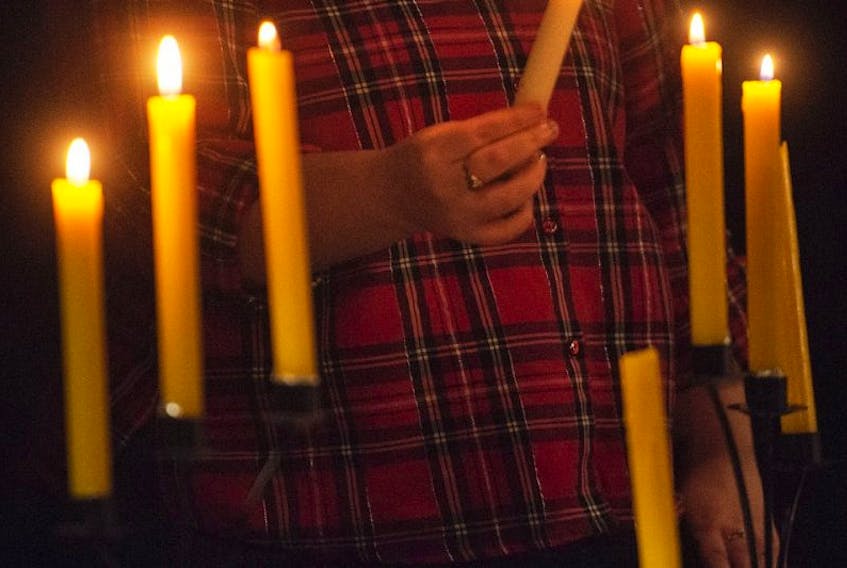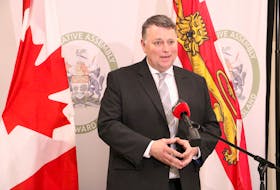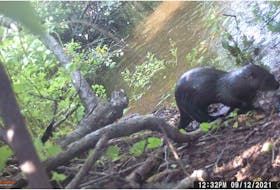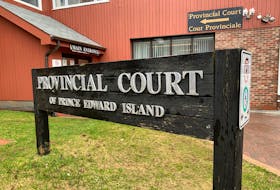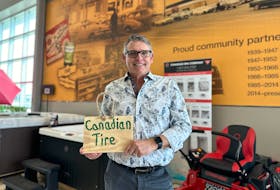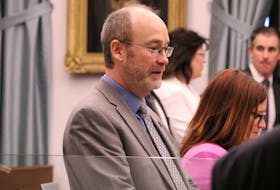As a son of a Holocaust survivor, the tragedies of the Second World War hold a deep personal significance for the Summerside resident.
However, while growing up Schleichkorn was somewhat unaware of the magnitude of the war’s impact on his family.
It wasn’t until he began doing his own research later in life when he realized his aunts, uncle and grandparents had been killed during the Holocaust.
“These people were my relatives, they were murdered and I never had a chance to be with them. It brings up all the emotions,” Schleichkorn said before giving a guest speech at Yam HaShoah, the Holocaust Memorial Service, in the Confederation Centre of the Arts on Sunday. “When you see pictures of what happened during the Second World War, it’s horrific. It’s a travesty that human beings are capable of doing things like that.”
The service honours the millions of people who died during the Holocaust and has been officially held on P.E.I. since the provincial government passed the Holocaust Memorial Day Act in 1999.
Sunday’s service saw a reading of victims’ names, where those in attendance could come to the microphone to recite the name of someone who was murdered.
Catherineann Martin also recited a poem.
Schleichkorn shared several stories of his family’s experiences during the war as well as how his father and mother escaped persecution.
Schleichkorn’s father was born in what was previously Czechoslovakia in 1914 before his sister helped him escape to Palestine in 1939.
He later participated in the Normandy invasion.
However, his parents, brother and two sisters were all killed in concentration camps.
“(My father) went around Czechoslovakia after the war trying to find his family, not knowing what had transpired,” said Schleichkorn.
Schleichkorn’s mother had a much different experience throughout the war.
She was an only child who was born to a Russian Jew that married a German soldier following the First World War.
They moved to Germany in the early 1920s and Schleichkorn said his maternal grandparents kept his mother’s Jewish identity a secret while growing up.
She lived in Germany during the Holocaust and didn’t find out she was Jewish until after the war.
“And my German grandfather had a Nazi friend who turned in his own Jewish wife. He also knew that my family was Jewish and he didn’t say anything,” said Shleichkorn. “That’s what a miracle it is that I’m even here.”
Schleichkorn noted his parents met after the war and moved to Canada around 1950 before having children.
Schleichkorn’s other relative who survived the Holocaust was his father’s cousin, Anna Duklauer, who was saved from a concentration camp by Oscar Schindler.
“She was number 34 on Schindler’s List,” said Schleichkorn, adding that she later shared her story throughout the U.S. including to Hillary Clinton and Stephen Spielberg.
Despite his family’s struggles, Schleichkorn said he wanted to leave the service with a message of positivity.
He noted that after the tragedies, his father lived to be 101-years-old and ended up having four children and 11 grandchildren.
Duklauer herself had three children, 14 grandchildren and a great-grandchild before she died.
He asked those who attended Sunday’s ceremony to “Pay it forward” and focus on spreading positivity.
“We had this misery… and we can sit back and think the world is going to hell in a hand basket,” said Schleichkorn, referencing recent military tension in North Korea and Syria. “If we all did good deeds maybe we would be in a better world… we all have to put that into our minds rather than ‘These people are the enemy, we have to shoot them.’ That’s the message I want to leave everybody with.”

